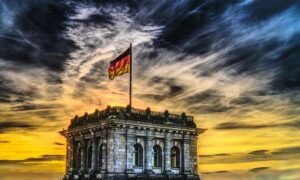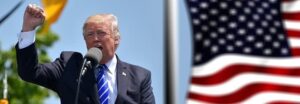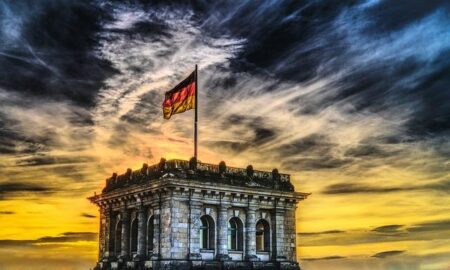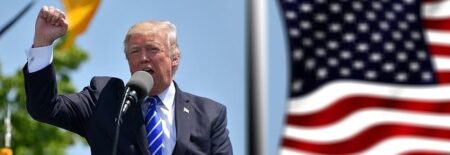Heightened National Guard Presence Strengthens Security in Washington DC
The deployment of National Guard forces in Washington DC represents a marked escalation in security protocols around critical government landmarks and public venues. This move responds to rising political tensions and aims to deter potential disturbances through increased patrols, vehicle screenings, and surveillance operations. Troops have been positioned at strategic locations to uphold public order during this sensitive period.
Current security initiatives include:
- Comprehensive vehicle checks at key access points
- Restricted zones established near the Capitol and White House
- Enhanced enforcement of curfews during nighttime hours
| Deployment Detail | Information |
|---|---|
| Number of Personnel | Approximately 1,200 National Guard members |
| Deployment Period | Set for an initial 30-day term |
| Command Structure | Under the District of Columbia National Guard leadership |
| Main Goal | Ensuring public safety and maintaining civil order |
Mayoral Criticism of Federal Military Intervention as Excessive Control
The mayor of Washington DC has strongly criticized the federal government’s decision to deploy National Guard troops, labeling it an overextension of federal power that undermines local governance. In a public address, she argued that this action circumvents the authority of the cityÔÇÖs elected officials and threatens the democratic framework that governs the capital. City leaders warn that such federal interventions risk eroding public confidence and could set a troubling precedent for future federal intrusions into municipal affairs.
Key concerns raised by the mayor include:
- Disregard for local authority: The deployment sidesteps the cityÔÇÖs leadership and fails to consider local priorities.
- Potential to escalate unrest: The presence of armed forces may provoke further tensions rather than alleviate them.
- Risk to civil liberties: Increased militarization raises fears about possible infringements on citizensÔÇÖ rights and freedoms.
| Issue | MayorÔÇÖs Perspective | Federal Position |
|---|---|---|
| Governance | Emphasizes local control | Implements federal override |
| Public Safety Approach | Prefers community-led solutions | Relies on military presence |
| Civil Rights | Focuses on protection and respect | Raises concerns about suppression |
Civil-Military Dynamics During Political Unrest
The introduction of National Guard troops into Washington DC amid heightened political discord has intensified debates about the appropriate role of military forces in civilian governance. This situation highlights a critical juncture where the militaryÔÇÖs involvement in supporting democratic institutions is under intense examination. The mayorÔÇÖs denunciation of what she terms an ÔÇťauthoritarian maneuverÔÇŁ by the previous administration reflects a broader resistance among civilian leaders to the increasing militarization of civil affairs. Such friction threatens to weaken the essential trust and collaboration between elected officials and military commanders, which is vital for upholding constitutional order.
Experts stress the necessity of maintaining clear boundaries to prevent the military from becoming a tool of political influence. Central issues include:
- Maintaining political impartiality: The armed forces must remain neutral to protect democratic integrity.
- Ensuring civilian oversight: Elected representatives must retain control over military deployments to avoid misuse.
- Adherence to legal standards: Military actions should comply strictly with laws and human rights obligations.
| Factor | Potential Consequences |
|---|---|
| Military Presence in Civilian Areas | Increased public unease and risk of perceived authoritarian control |
| Political Discourse | Threat to the militaryÔÇÖs nonpartisan stance |
| Civilian Leadership Response | Calls for stricter regulations and oversight |
Ongoing transparency and open communication are crucial to ensure the military supports democratic stability rather than undermines it during politically volatile times.
Strategies for Harmonizing Security with Democratic Rights
Balancing the imperative of national security with the preservation of democratic freedoms demands careful planning and accountability. Authorities should establish clear and transparent guidelines prior to deploying armed forces in civilian contexts, detailing the mission scope, duration, and operational limits to prevent misuse of power. Building public trust requires active engagement with community representatives, media outlets, and civil rights advocates to foster informed dialogue about security needs and constraints.
Recommended actions to protect both safety and civil liberties include:
- Independent oversight mechanisms: Create watchdog groups to monitor troop conduct and report violations.
- Human rights-focused training: Prepare forces with skills in de-escalation and respect for individual rights.
- Transparent communication: Keep the public informed with accurate, timely updates on security operations.
- Legal protections: Enforce strict rules governing use of force and provide accessible channels for grievances and redress.
| Focus Area | Recommended Action | Anticipated Benefit |
|---|---|---|
| Transparency | Disclose deployment criteria and timelines publicly | Enhances public trust and legitimacy |
| Community Involvement | Host regular dialogues with civil society groups | Reduces misunderstandings and tensions |
| Accountability | Establish independent monitoring bodies | Ensures compliance and deters abuses |
Conclusion: Key Insights on Security and Civil Liberties
The ongoing presence of National Guard troops in Washington DC amid intensified security protocols reflects the deep political divisions shaping the nationÔÇÖs capital. Mayor Muriel BowserÔÇÖs outspoken rejection of what she terms an ÔÇťauthoritarian pushÔÇŁ by former President Donald Trump encapsulates the broader national debate over the delicate balance between maintaining order and protecting civil rights. As the situation evolves, Washington and the country face critical questions about governance, protest rights, and the boundaries of executive authority in a democratic society.






